This is a list of topics I had to commit to memory when studying on HamTestOnline.com for my General Amateur Radio License.
Bandwidth
Bandwidth - Signal Type to Bandwidth:
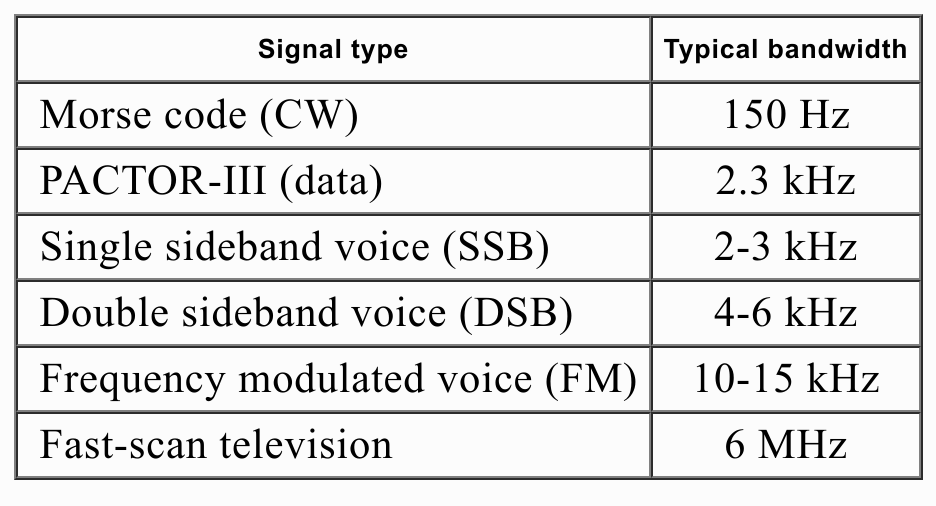
General Class Frequency Privileges:
Overall:
Specific General Class Frequencies to Remember for Test:
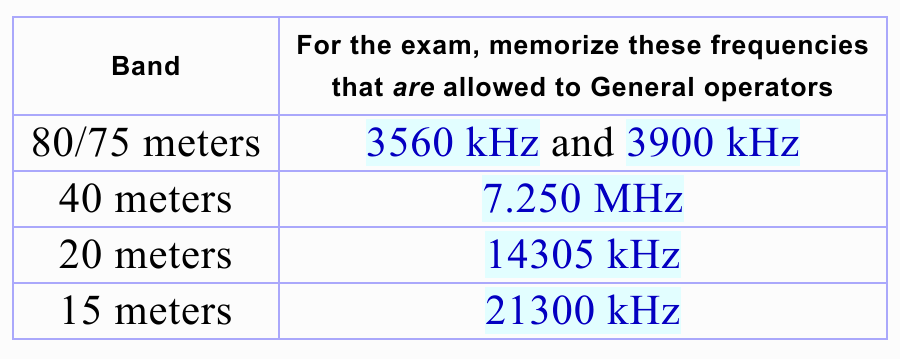
- Phone and images not permitted on 30 m band.
Crossband Repeater:
- The FCC regulations limit repeaters in the 10-meter band to the frequency range 29.5-29.7 MHz.
Transmitter Power:
- No station may transmit with a transmitter power exceeding 1500 watts PEP.
- No station may transmit with a transmitter power output exceeding 200 W PEP on the 30-meter band (10.1-10.15 MHz).
Maximum Symbol Rate:
Basic Band to Symbol Rates
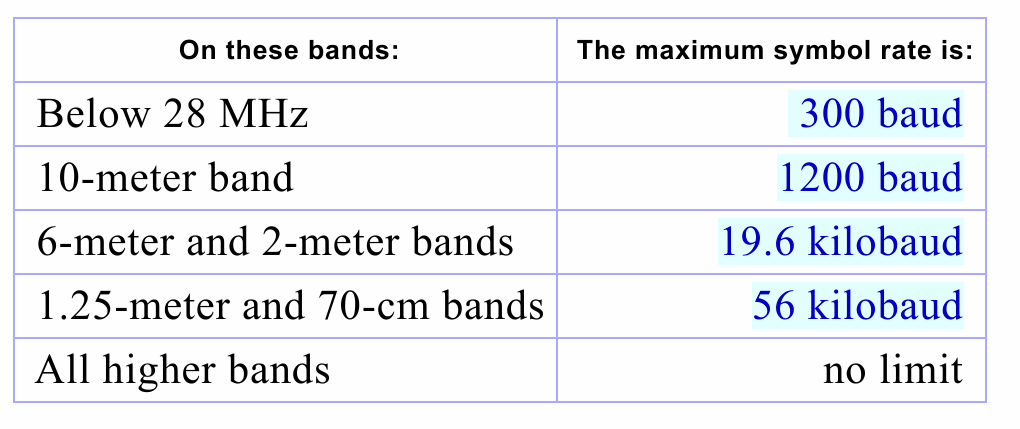
Frequently Used Q Signs:
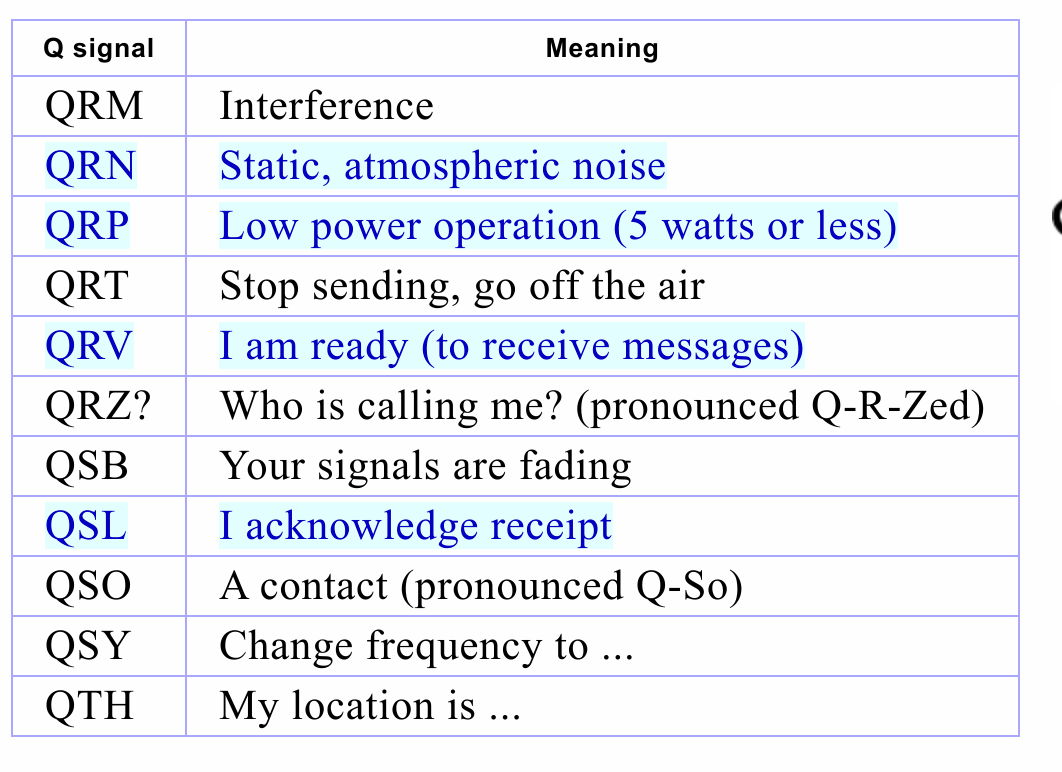
Used only for CW:
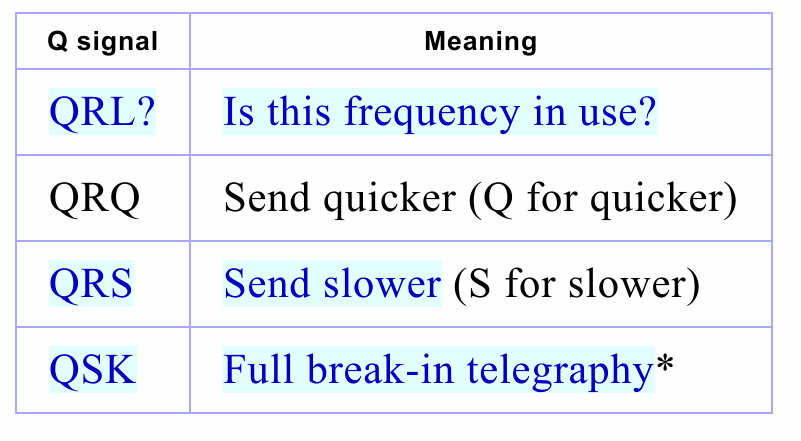
Band Plan:
- DX Window: Range of frequencies for DXing outside of contiguous states. An example is: 50.1-50.125 MHz
- 80 m band digital contacts occur in RTTY/Data (3.570-3.60 MHz)
- 20 m digital contacts RTTY and packet (14.070-14.112 MHZ)
- 20 m PSK31 contacts below RTTY segment (< 14.070 MHZ)
SSB: Upper vs Lower
- LSB for frequencies below 9 MHz (160, 80 and 40 m)
- USB for frequencies above 9 MHz (20 m and shorter including VHF and UHF)
Exceptions
- USB on all five channels of 60 m
- LSB is always used for RTTY and AFSK
- USB is always used for certain digital modes (PSK31, JT65, JT9 or FT8 on AFSK)
Procedural Signs for CW:
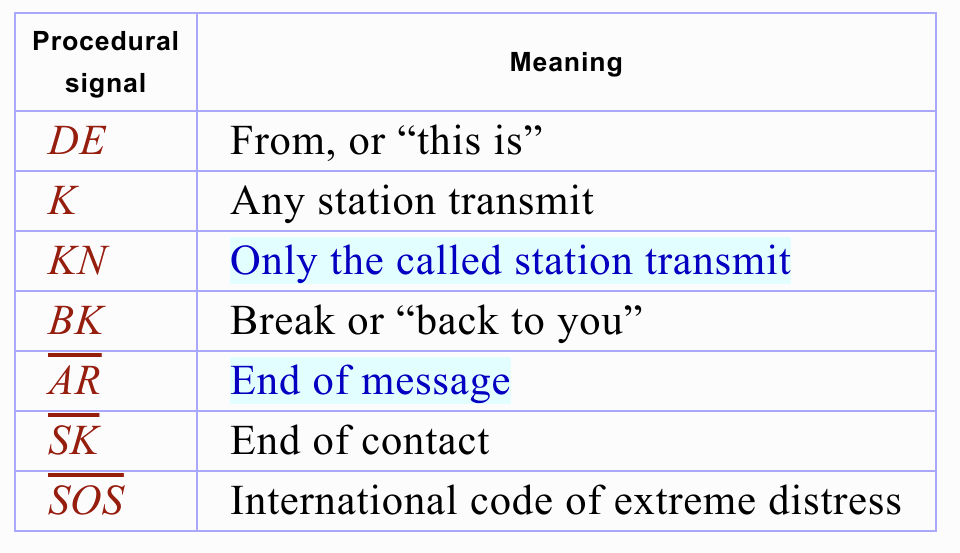
Formulas:
- P = E * I
- P = E2 / R
- P = I2 * R
- Evrms = sqrt(P * R)
- Vrms = Peak V * .707, where peak is taken from oscillator, if peak to peak divide by 2
- PEP = (Vrms)2 / R
- 1/2 Wavelength = 468/Mhz, if 1/4 half numerator
- Low Dev = Freq. Dev / (Freq / Low Freq)
- Bandwidth = 2 * (Dmax + Mmax)
- Db Loss = 10-(Db Loss / 10)
- Sum Resistors and Inductors in series.
- Sum reciprocal Resistors and Inductors in parallel.
- Sum Capacitors in parallel.
- Sum reciprocal Capacitors in series.
- Transformer = Np/Ns = sqrt(Zp/Zs)

Comments1
Passed my General last…
Passed my General last Thursday (100%) ... whoopee!